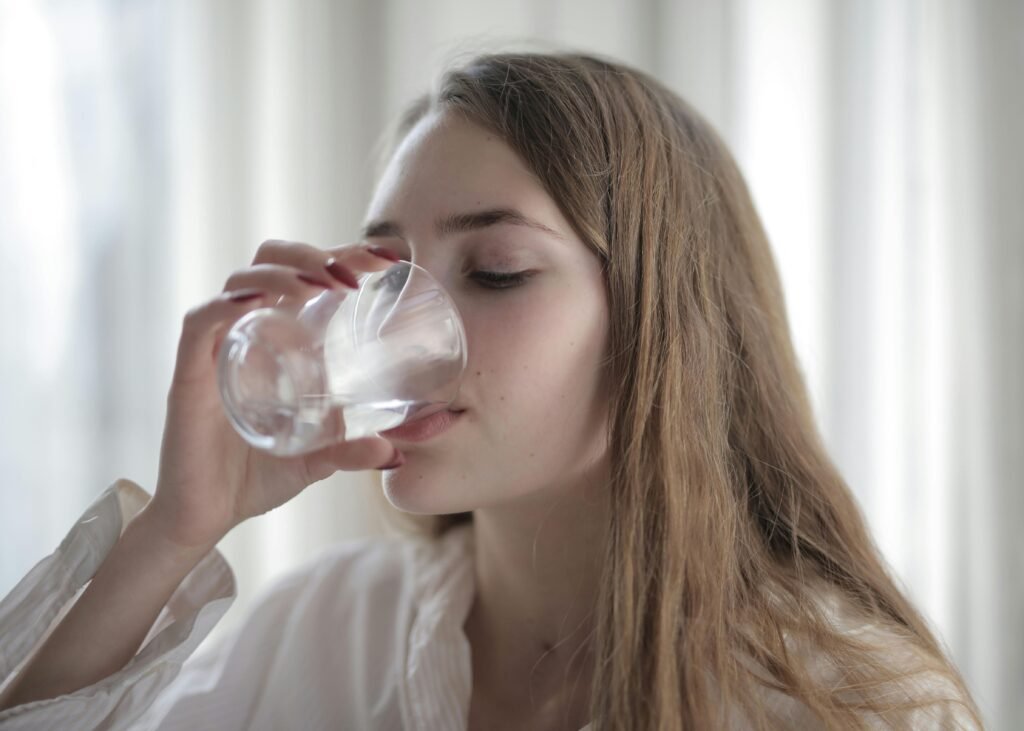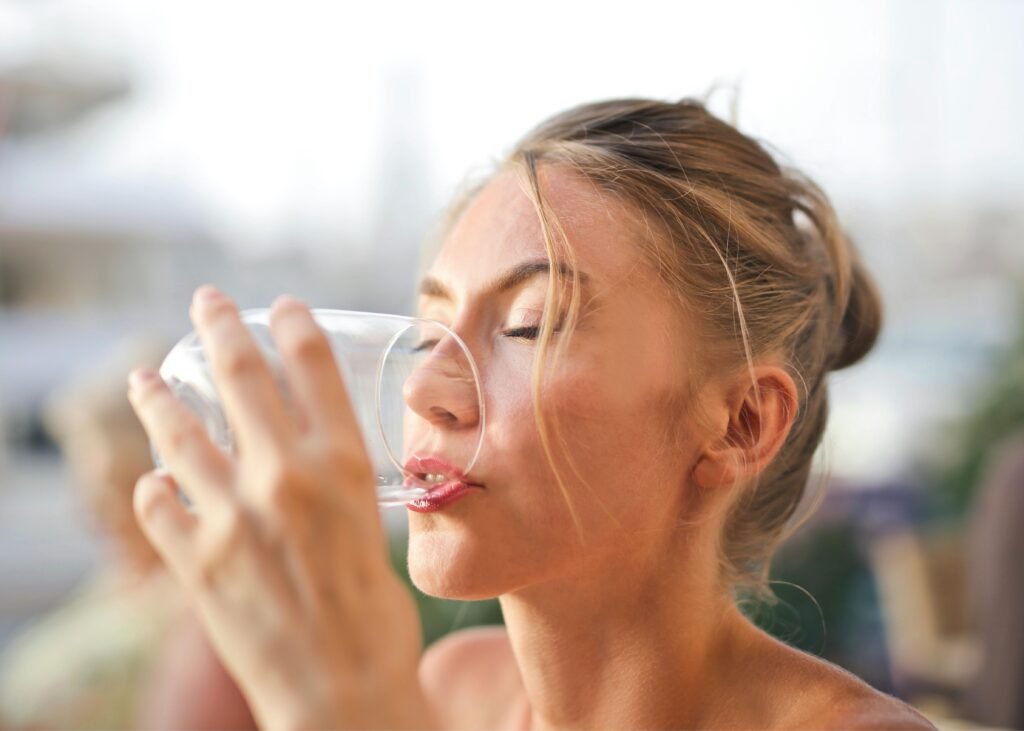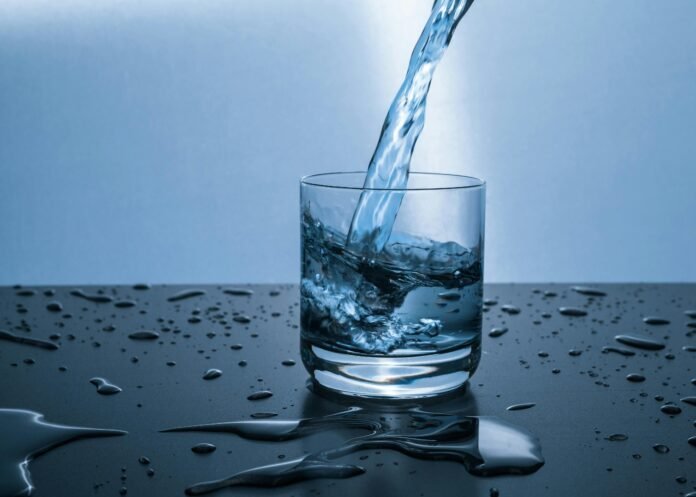Water is essential for life. It plays a crucial role in maintaining the body’s functions, from regulating temperature to flushing out toxins, supporting digestion, and keeping our skin hydrated. Despite its importance, many of us overlook how much water we consume daily. The question, “How much water should we drink daily?” might seem simple, but the answer is complex and varies based on individual needs, lifestyle, and environmental factors. This article explores the science behind daily water intake, factors influencing hydration needs, and practical tips to ensure you’re drinking enough water.
The Importance of Water in the Human Body
Water accounts for approximately 60% of an adult’s body weight. Every organ, tissue, and cell relies on water to function properly. Here are some of the essential roles water plays in our body:

- Regulation of Body Temperature: Sweating helps cool the body, but this process requires adequate water levels.
- Joint Lubrication: Water acts as a lubricant for joints, preventing friction and discomfort.
- Nutrient Transport: Water helps carry nutrients and oxygen to cells and removes waste products.
- Digestion: It aids in breaking down food, absorbing nutrients, and preventing constipation.
- Brain Function: Proper hydration supports concentration, mood regulation, and cognitive performance.
- Kidney Function: Water helps kidneys filter waste and maintain electrolyte balance.
Given its critical role, insufficient water intake can lead to dehydration, which manifests in symptoms like fatigue, dry skin, headaches, and confusion.
The General Guidelines for Water Intake
The general rule of thumb often cited is the “8×8 rule,” which suggests drinking eight 8-ounce glasses of water a day, equating to about 2 liters or half a gallon. While this is a reasonable starting point, it is not a one-size-fits-all recommendation.
The National Academies of Sciences, Engineering, and Medicine (NASEM) provides more nuanced guidelines. They suggest:
- Men: About 3.7 liters (125 ounces) of water daily.
- Women: About 2.7 liters (91 ounces) of water daily.
These recommendations include fluids from all beverages and food. On average, 20-30% of our daily water intake comes from food, such as fruits and vegetables. For instance, cucumbers and watermelon are over 90% water.
Factors Influencing How Much Water You Need
Your personal water needs depend on several factors, including:
1. Age and Gender
- Children: Young children require less water than adults due to their smaller body size but need frequent hydration.
- Older Adults: Aging can reduce thirst perception, making seniors more susceptible to dehydration.
- Pregnancy and Breastfeeding: Pregnant and lactating women require more water to support the developing fetus and milk production.
2. Activity Level
Physical activity increases water loss through sweat. Athletes or individuals engaging in intense exercise should drink extra water before, during, and after their workout to compensate for the fluid loss.
3. Environment
Hot or humid climates lead to increased sweating, necessitating higher water intake. Similarly, high altitudes can dehydrate the body faster, requiring more hydration.
4. Diet
A high-protein or high-sodium diet can increase water needs as the kidneys work harder to excrete excess nitrogen and sodium. Similarly, consuming diuretics like coffee and alcohol can lead to fluid loss, requiring increased water consumption.
5. Health Conditions
Certain medical conditions, like fever, diarrhea, vomiting, or urinary tract infections, can deplete the body’s water reserves. People with kidney stones or bladder infections also benefit from increased water intake to flush out toxins.
Signs You’re Not Drinking Enough Water
Dehydration can creep up without warning, especially if you’re not paying attention to your body’s signals. Some common signs include:

- Thirst: Feeling thirsty is an obvious signal, but thirst often kicks in when you’re already slightly dehydrated.
- Dark Urine: Light, straw-colored urine typically indicates good hydration, while darker urine signals dehydration.
- Dry Skin and Lips: Dehydrated skin loses its elasticity, becoming dry and flaky.
- Fatigue: Water is essential for energy production. Without enough, you may feel sluggish.
- Headaches: Dehydration can lead to headaches or even migraines in some cases.
- Dizziness: Lack of water can lower blood pressure, causing dizziness or fainting.
Can You Drink Too Much Water?
While drinking too little water is harmful, overhydration—also known as water intoxication or hyponatremia—can be equally dangerous. This condition occurs when you drink excessive amounts of water, diluting the sodium levels in your blood. Hyponatremia can lead to symptoms like confusion, nausea, headaches, and in severe cases, coma or death. It’s important to strike a balance and listen to your body’s needs.
Practical Tips to Stay Hydrated
- Carry a Water Bottle: Keep a reusable water bottle with you throughout the day to make drinking water convenient.
- Set Reminders: Use apps or set alarms to remind yourself to drink water regularly, especially if you’re prone to forgetting.
- Flavor Your Water: Add slices of lemon, cucumber, or mint to enhance the taste of water if plain water doesn’t appeal to you.
- Monitor Your Urine: Use the color of your urine as a hydration guide; pale yellow indicates good hydration.
- Eat Hydrating Foods: Include water-rich foods like watermelon, cucumbers, oranges, and leafy greens in your diet.
- Drink Before You’re Thirsty: Don’t wait for thirst to kick in; by the time you feel thirsty, dehydration has already started.
- Hydrate Around Activities: Drink water before, during, and after exercise or any physical activity.
- Adjust for Environment: If you’re in a hot climate or at a high altitude, increase your water intake accordingly.
Water and Special Diets
If you follow a specific diet, your water needs may differ. For example:
- Keto Diet: High-fat, low-carb diets like keto can lead to water loss, requiring increased hydration.
- High-Protein Diet: Protein metabolism produces waste that requires extra water for excretion.
- Intermittent Fasting: During fasting periods, ensure you’re hydrating sufficiently to avoid dehydration.
Beyond Water: Other Hydration Sources
While water is the best hydrator, other beverages and foods can contribute to your daily fluid intake. Herbal teas, milk, and fresh juices are excellent choices. Even coffee and tea can count towards hydration, although they may have a mild diuretic effect. Avoid sugary drinks like soda, as they can lead to dehydration in the long run due to their high sugar content.
The Role of Technology in Tracking Hydration
In today’s digital age, there are several tools to help you stay on top of your hydration game. Smart water bottles and hydration apps can track your water intake and remind you to drink. These tools are particularly helpful for individuals with busy lifestyles or those who struggle to maintain consistent hydration.
Conclusion: Listen to Your Body
“How much water should we drink daily?” doesn’t have a universal answer. While general guidelines suggest 2.7 to 3.7 liters for most adults, your individual needs may vary based on age, activity level, climate, and diet. The key is to listen to your body’s signals, stay mindful of your fluid intake, and adjust based on your unique circumstances.
Remember, hydration is not just about avoiding dehydration; it’s about optimizing your body’s performance and well-being. So, grab that glass of water and start making hydration a priority today!



